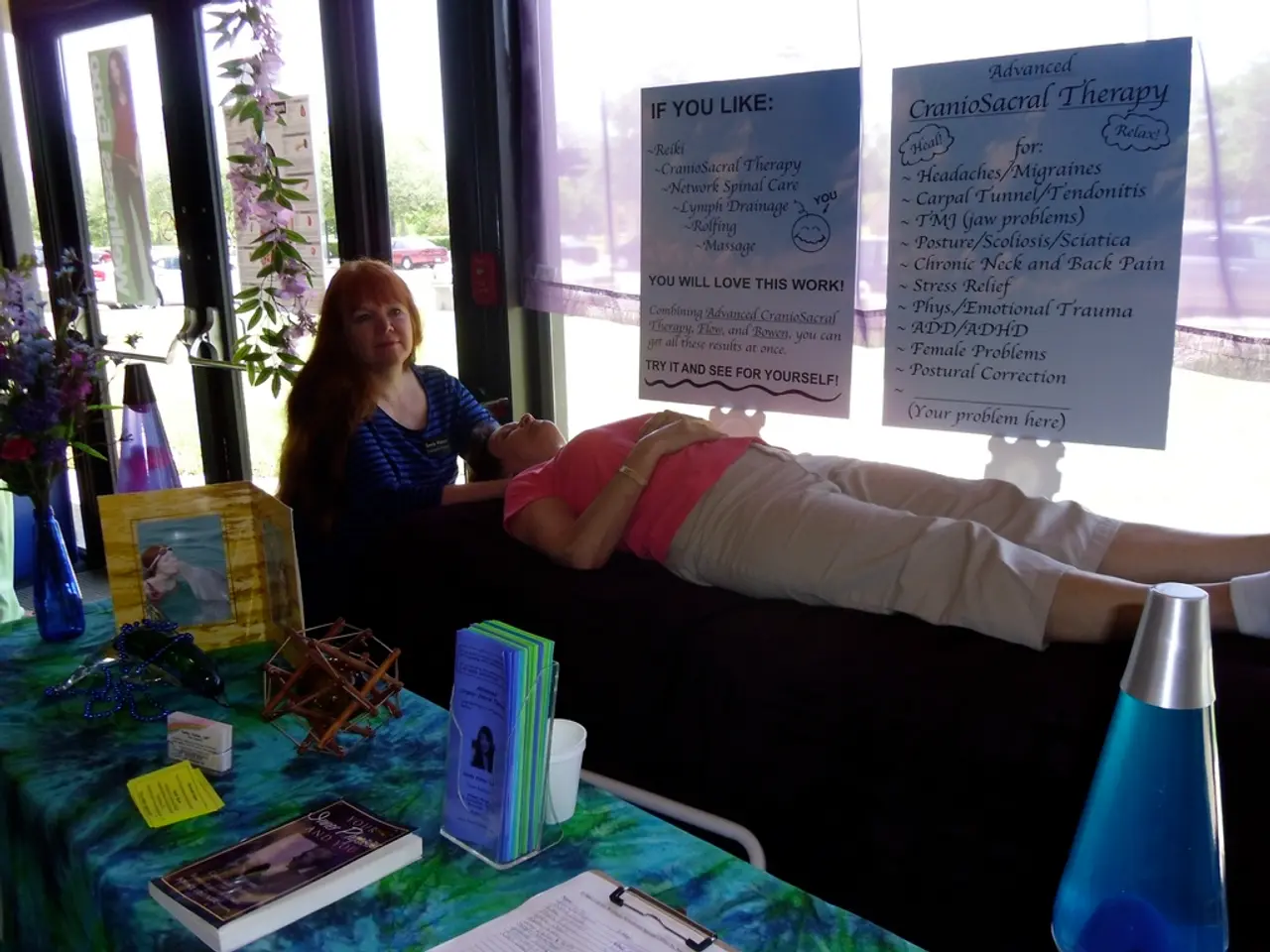Struggling PTSD Sufferers Exhibit Enhanced Responsiveness to Unusual Audio Stimuli
Discovery of Neurobiological Marker for PTSD Offers Hope for Diagnosis and Treatment
In a groundbreaking development, scientists from the Universities of Birmingham and Amsterdam may have discovered a neurobiological marker for post-traumatic stress disorder (PTSD). This could potentially revolutionise the way PTSD is diagnosed and treated.
The study, led by Professor Miranda Olff from the Arq Psychotrauma Expert Group at the University of Amsterdam, and Dr. Ali Mazaheri from the University of Birmingham's School of Psychology and Centre for Human Brain Health, has found that individuals with PTSD show an enhanced brain response to slight changes in tone.
The research team conducted the study by playing simple tones every second and intermittently playing slightly altered tones (1200 Hz), known as deviant tones, to test the brain's response. They studied the brain activity of a group of thirteen patients with PTSD using an electroencephalogram (EEG).
The more enhanced the response to deviant tones, the more poorly the patients performed on cognitive tests looking at memory. This suggests that the brain of a patient with PTSD over-processes any change in the environment.
The study compared PTSD patients with a control group of those that also suffered similar trauma but didn't develop PTSD. Approximately one in every ten people who suffer a traumatic experience will go on to develop PTSD, according to Professor Olff.
Symptoms of PTSD may include severe anxiety, guilt, isolation, insomnia, nightmares, depression, agitation, flashbacks, and declines in memory and concentration. PTSD can be triggered by numerous traumatic events such as serious road accidents, violent personal assaults, witnessing violent deaths, military combat, being held hostage, terrorist attacks, and natural disasters.
The disorder can develop immediately after the traumatic event or it can begin weeks, months or even years after the event. If confirmed, the marker could be used to help diagnose PTSD as well as assess if a patient is getting better with treatment.
The neurobiological evidence shows how altered brain activity of a patient with PTSD is closely related to the way it processes the world. The research team is conducting more studies to confirm the marker and is planning a clinical trial to test potential treatments on patients with PTSD.
This is the first research study of its kind that has discovered a neurobiological marker for PTSD. The search results do not provide specific information about the time period during which investigations were conducted to discover a neurobiological marker for identifying patients with post-traumatic stress disorder. However, the potential implications for PTSD diagnosis and treatment are significant.








